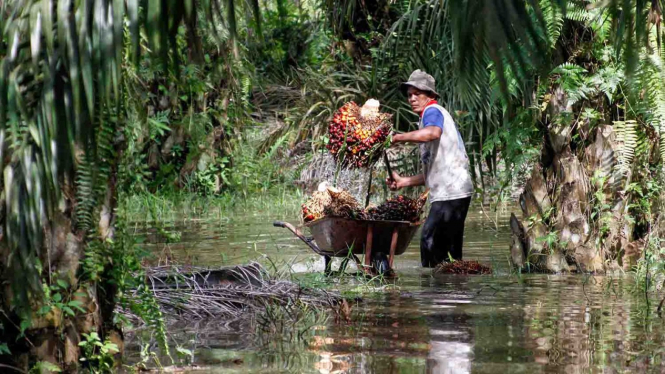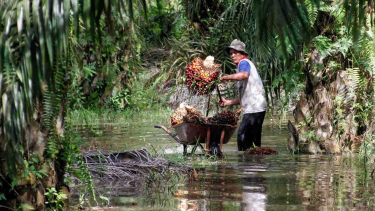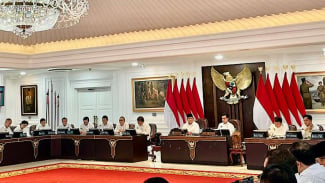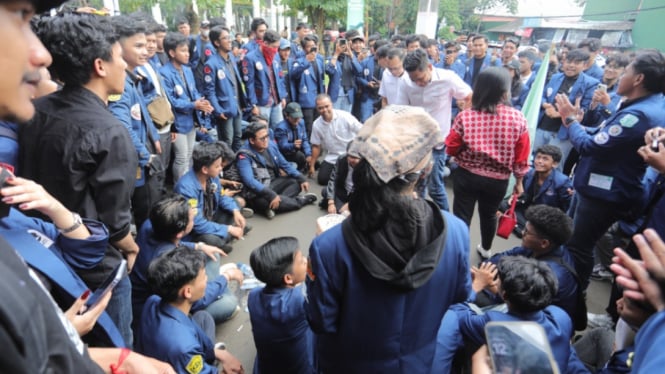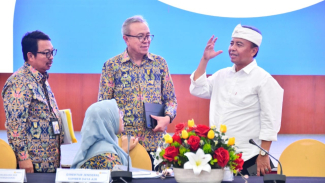Sustainable Palm Oil Partnership Launched to Support Smallholders in Indonesia
- ANTARA FOTO/Hadly V
Jakarta, VIVA – Serikat Petani Kelapa Sawit (SPKS) and Nissin Foods Holdings-Japan have officially launched a partnership to promote sustainable palm oil practices among smallholder farmers in Indonesia.
Building on a collaboration initiated in 2018, the initiative aims to bridge sustainability gaps identified in smallholder supply chains through a pilot project that facilitates integration into Japan’s palm oil supply chain via RSPO (Roundtable on Sustainable Palm Oil) certification.
This program underscores Nissin Foods Holdings' commitment to sourcing sustainable palm oil for its products, primarily instant noodles. Kei Saito, General Manager of Nissin Foods Holdings’ Corporate Planning Division, highlighted the company’s dedication.
“Nissin Foods Holdings is committed to sustainable palm oil procurement, particularly by involving smallholders in our supply chain. Over the years, we have partnered with SPKS to foster dialogue with Indonesian smallholders. This initiative, supported by SPKS and Desa Sugih Waras, is a stepping stone to enhance sustainable farming practices and improve the livelihoods of smallholders.”
SPKS National Chairman Sabarudin praised Nissin Foods’ investment in smallholders, emphasizing the importance of traceable, deforestation-free, and sustainable palm oil.
“We hope the company’s supply chain in Japan will be fully supported by smallholders. SPKS can act as an independent verifier to ensure traceability for sustainable palm oil,” Sabarudin said. He also stressed the need for fair partnerships that ensure equitable prices for smallholders.
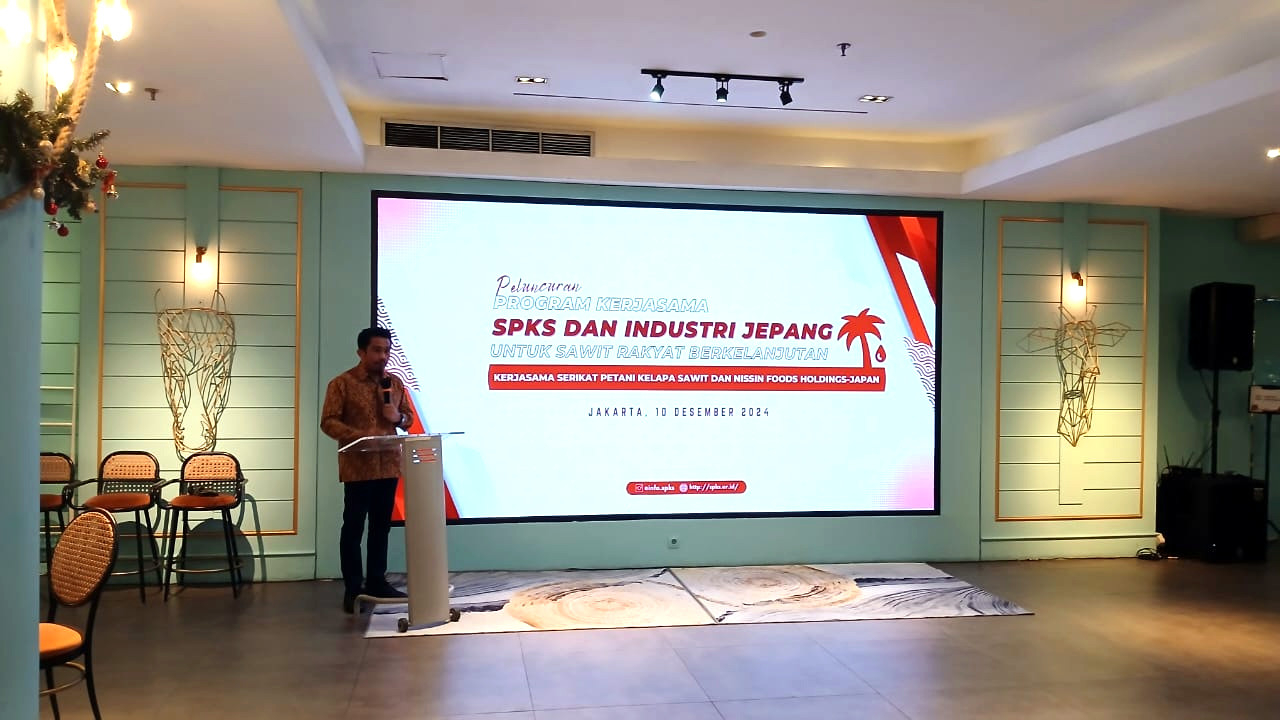
Hiroshi Ishida, Executive Director of Caux Round Table Japan, emphasized the collaboration's broader impact: “Through this program, we are building trust between companies and smallholders, contributing to a better society.”
In Desa Sugih Waras, the partnership is seen as a vital step towards improving governance at the village level. Asrianto, the village secretary, noted the significance of the program for their 300 farming families managing 500 hectares of palm plantations.
“Farmers need support for capacity building, institutional development, and sustainable practices, including certification. We hope this collaboration enhances their welfare and fosters fair partnerships with companies,” he said.
This initiative reflects the growing emphasis on sustainable palm oil as a means to empower smallholders and address global environmental challenges.


